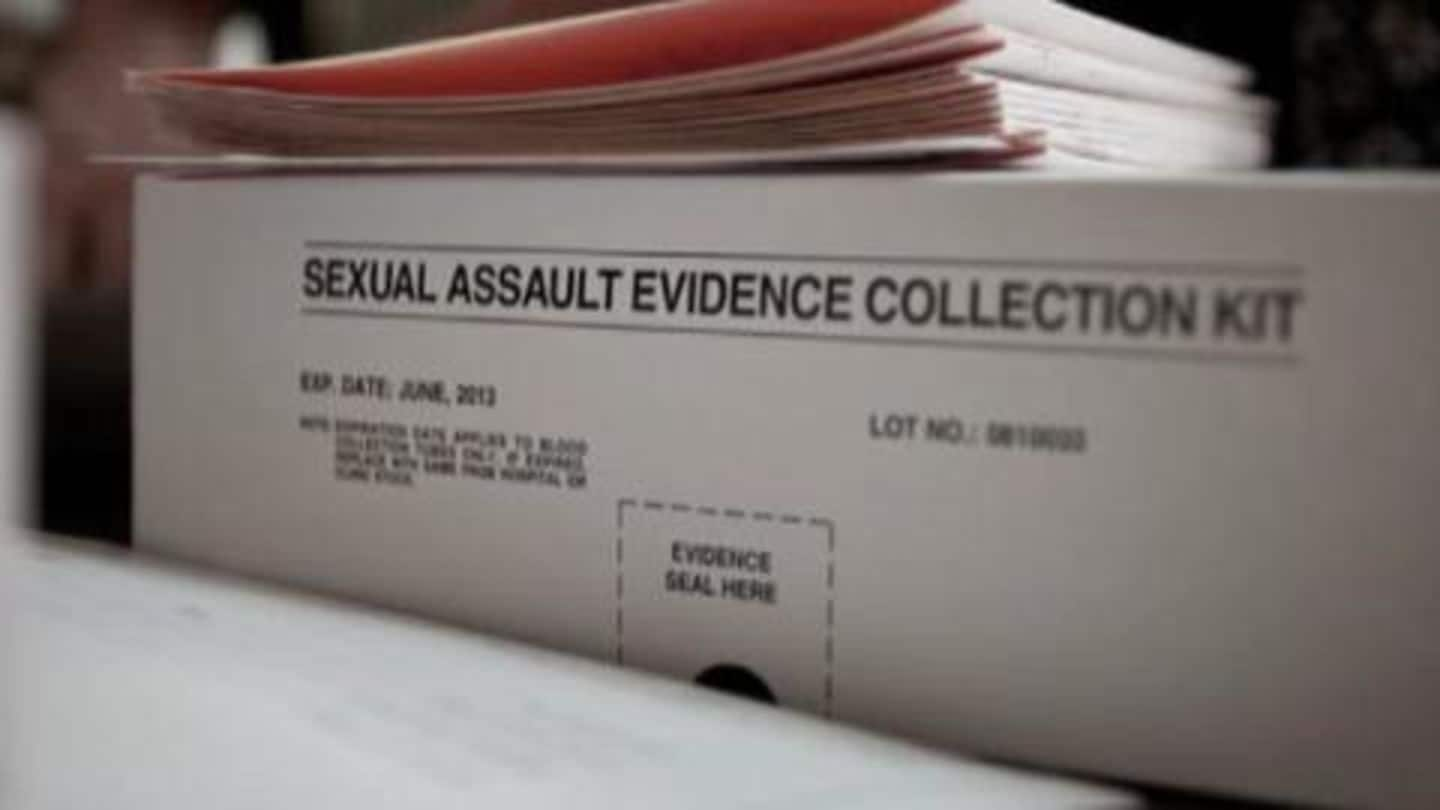
MHA distributes special kits to help probe sexual assault cases
What's the story
Over 3,100 special kits for collecting blood and semen samples, besides other evidence, to carry out immediate investigations into sexual assault cases have been distributed among States and Union Territories by the Home Affairs Ministry.
The Sexual Assault Evidence Collection Kits (SAECK) or "rape investigation kits" are designed to conduct immediate medico-legal investigation and aid in furnishing evidence in sexual assault and rape cases.
Distribution
MHA procured 3,120 SAECK, distributed it to states and UTs
The Ministry of Home Affairs has procured 3,120 SAECK and distributed it to the States and UTs, a senior MHA official said.
Each of these kits comprises essential items that will aid in furnishing evidence such as blood and semen samples in sexual assault and rape cases, thus helping the prosecution to gather evidence against the accused in a quick time.
What's inside?
Kit contains test tubes, bottles and set of instructions
The kits are expected to help law enforcement agencies to ensure effective investigation in a timely manner for better prosecution and convictions in sexual assault cases, the official said.
The kit has a set of test tubes and bottles, which mention contents and specifications. These kits also contain instructions on the collection of evidence from the crime scene.
Information
Police and medical officers are being given training on usage
The SAECKs would be sent to the closest laboratory and within two months, the results would be out. Police and medical officers are being given training on how to use the kits in the event of any such case happening in their area of jurisdiction.
Training
Trained 2,575 investigators, 1,648 prosecutors and 927 doctors: Official
"We have already trained 2,575 investigators, 1,648 prosecutors, and 927 doctors from various States and UTs both for systematic collection of evidence and as master trainers," another official said.
The SAECKs or "rape investigation kits" were procured with financial support under the central government's 'Nirbhaya Fund', which was named after the 2012 Delhi gang-rape victim.
States will procure additional SAECKs as per requirements gradually.
Records
Cases of rape increased to 38,947 in 2016: NCRB
There are around 15,640 police stations in 29 states and seven union territories in the country.
Incidents of crime against women rose from 3,29,243 in 2015 to 3,38,954 in 2016. In 2015, as many as 34,651 cases of rape were registered in the country.
The figure increased to 38,947 in 2016, according to the data of the National Crime Records Bureau (NCRB).
Instructions
DFSS issued guidelines for investigators, prosecutors and medical officers
However, the data for 2017 and 2018 is yet to be published by the NCRB.
The Directorate of Forensic Sciences (DFSS), a wing of the Home Ministry, has issued two guidelines, one for investigators and prosecutors for collection, storage and transportation of forensic evidence in sexual assault cases and the second for medical officers dealing with sexual assault cases.
Information
Delhi-based LNJP NIC&FS is undertaking training of medical officers
The Delhi-based Lok Narayan Jai Prakash National Institute of Criminology and Forensic Sciences (LNJP NIC&FS) is undertaking training of medical officers from states and union territories on medico-legal procedures, including evidence collection and handling of forensic material in sexual assault cases.